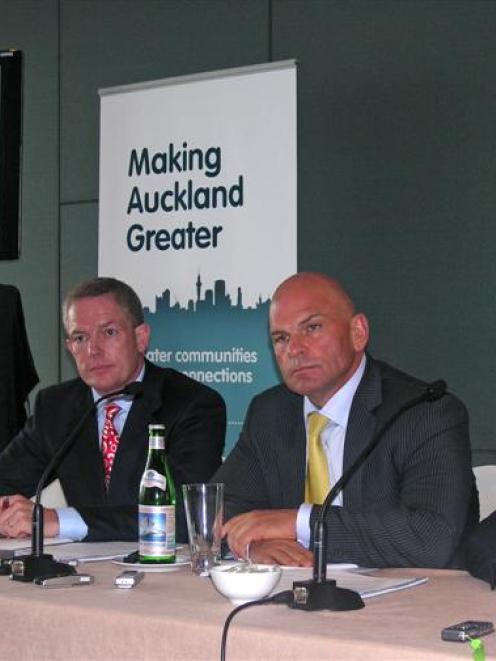
Prime Minister John Key and Local Government Minister Rodney Hide today announced the Government agreed with a Royal Commission's recommendation to set up a new Auckland Council, with one elected mayor.
However the Government rejected the recommendation that Maori have three seats on the council, saying the council could establish the positions itself if there was community support.
Maori Party co-leader Dr Sharples said Maori seats were not a matter of special rights or privileged position, but of building a future on solid foundations of justice.
"Without distinctive Maori councillors and mana whenua positions, as the Royal Commission recommended, Maori will almost have no chance of being elected to the board. Representation at-large will cater for the corporate few, while tangata whenua and grass-roots have been marginalised and relegated to the community level."
Dr Sharples told reporters he had spoken to Mr Key about his objections and the support agreement between the Maori Party and the Government was not in danger.
"Some people will be a little stunned by the commotion it might cause," he said.
"But the reality is the prime minister and I both sit very easily with this."
Dr Sharples said the support agreement allowed the Maori Party to hold different views to the Government.
"The whole reason we stayed out of Cabinet was for that reason, so we could have this agreement to agree to disagree."
The Government also rejected the commission's recommendation to set up six "local councils", instead deciding to set up 20 to 30 "local boards" to control local affairs.
The Government chose to have eight councillors elected by all Aucklanders and 12 from wards. The commission recommended a 10-10 split.
The first elections under the new structure will be in October 2010.
Labour Party leader Phil Goff said the Government was ramming through decisions that would result in a huge centralisation of power.
"The Government's decisions completely remove the local from local government," he said.
"The boards which replace the local councils will have limited real powers and therefore relevance."
Mr Goff, an Auckland MP, said the Government promised to strengthen local representation but had done the opposite.
"They have actually changed the commission's recommendations without any consultation."
Auckland City Mayor John Banks welcomed the announcement.
"Auckland has let the side down for a long time in the economic and social sense. Now we have an opportunity to sing from the same song sheet and the same tune.
"The government reconstruction of the Royal Commission report means that there's more democracy and much less bureaucratic interference," Mr Banks said.
Most mayors from the Auckland region were supportive of the proposal, but also sceptical about how it would operate.
Waitakere Mayor Bob Harvey said the new structure concentrated too much power in the hands of too few.
"Aucklanders don't realise that under the new structure rates raised locally will not be spent locally. All the money will be funnelled into the Auckland Council and we will be begging for scraps from the table.
"Residents in outlying areas will subsidise grandiose schemes like the Viaduct and waterfront development. Newmarket will be paved with gold - but how far down the list do you think places like Te Atatu, Glenfield or Papatoetoe will be?"
Manukau Mayor Len Brown said he was surprised the Government had decided to support the creation of 20 to 30 community boards.
"While I am a strong advocate of local communities, these new community boards will need to strongly represent their community's views to the Auckland Council.
"That means 20 to 30 voices asking for funding, trying to manage local issues. It will be hard for the community boards to be heard above each other at the Auckland council level."
Business lobby groups such as the Employers and Manufacturers Association, Newmarket Business Association and Auckland Chamber of Commerce welcomed the announcement.
Michael Barnett, chief executive of the Auckland Chamber of Commerce, said the new structure delivered less duplication of cost and function, and for business it provided one point of contact.
"The proof in time will be if it will be easier and better to do business with."
Local Government New Zealand president Lawrence Yule said the reform would be the most significant in local government in 20 years.
"It is an opportunity for greater investment and engagement by government agencies in making Auckland a better city."


